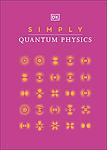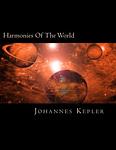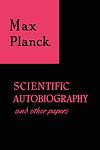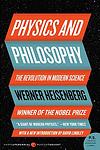The Greatest German "Science" Books of All Time
Click to learn how this list is calculated.
This list represents a comprehensive and trusted collection of the greatest books. Developed through a specialized algorithm, it brings together 300 'best of' book lists to form a definitive guide to the world's most acclaimed books. For those interested in how these books are chosen, additional details can be found on the rankings page.
Genres
The category of "Science" in books encompasses a wide range of topics related to the natural world, including physics, chemistry, biology, astronomy, and more. These books may explore scientific theories, discoveries, and advancements, as well as the history and philosophy of science. They may also cover practical applications of science, such as technology and medicine. Overall, the Science category offers readers a deeper understanding of the world around them and the scientific principles that govern it.
Countries
Date Range
Reading Statistics
Click the button below to see how many of these books you've read!
Download
If you're interested in downloading this list as a CSV file for use in a spreadsheet application, you can easily do so by clicking the button below. Please note that to ensure a manageable file size and faster download, the CSV will include details for only the first 500 books.
Download-
1. Relativity by Albert Einstein
This book is a comprehensive introduction to the theory of relativity written by the physicist who developed the theory. It covers both the special and general theories of relativity and provides an accessible explanation of the physics involved, including the nature of light, time, and gravity. The book also discusses the philosophical implications of relativity and its impact on our understanding of reality. Written for a general audience, it aims to make complex scientific concepts understandable to non-experts.
-
2. The Rings of Saturn by W. G. Sebald
"The Rings of Saturn" is a richly detailed travelogue that follows the narrator's journey along the coast of Suffolk, England. The narrative weaves together history, literature, and personal anecdotes, exploring topics as diverse as the decline of the herring industry, the horrors of colonialism in the Congo, and the life of philosopher Sir Thomas Browne. The book is characterized by its melancholic tone, its digressive style, and its meditative reflections on memory, time, and decay.
-
3. Galileo by Bertolt Brecht
This play delves into the life of the renowned Italian scientist, Galileo Galilei, who challenged the church's belief in a geocentric universe. It explores his struggles against the Catholic Church, his recantation, and the consequences of his actions on his life and those around him. The narrative also examines the conflict between science and religion, the ethics of scientific discovery, and the price of truth.
-
4. The Swarm by Frank Schatzing
"The Swarm" is a science fiction novel that explores the disastrous consequences of mankind's exploitation of the world's oceans. The narrative follows a group of scientists around the world as they try to understand a series of inexplicable, catastrophic natural disasters. They eventually discover that these events are not random but are the result of a collective intelligence in the sea, a swarm of marine life that has decided to fight back against humanity's destruction of their habitat. The book combines elements of ecological thriller, disaster novel, and speculative fiction as it explores the potential consequences of human interference with the natural world.
-
5. Ideas and Opinions by Albert Einstein
This book is a collection of essays, letters, and speeches from a renowned physicist, offering his thoughts on a wide range of topics. It includes his insights on science, philosophy, religion, politics, peace, education, liberty, and morality. The physicist's reflections on his own scientific discoveries and the theories of other great thinkers are also discussed. This compilation provides a comprehensive view of his intellectual development and personal beliefs.
-
6. Uncertainty Principle by Werner Heisenberg
"Uncertainty Principle" is a seminal work in quantum mechanics that explores the concept that it's impossible to simultaneously measure the exact position and momentum of a particle. This principle has profound implications for our understanding of the physical world, challenging traditional notions of cause and effect and deterministic laws of physics. The book details the development, interpretation, and implications of this principle, providing a comprehensive overview of one of the most fundamental concepts in quantum physics.
-
7. The Harmony of the Worlds by Johannes Kepler
"The Harmony of the Worlds" is a scientific text that presents the author's innovative and groundbreaking theories on planetary motion. The author proposes that the movements of the planets in our solar system are not random, but rather follow precise mathematical relationships, likening these celestial patterns to harmonious musical notes. The book is a fundamental work in the history of astronomy, and it has had a profound influence on our understanding of the universe and its laws.
-
8. The Invention Of Nature: Alexander Von Humboldt’s New World by Andrea Wulf
"The Invention of Nature" is a biographical account of Alexander von Humboldt, a 19th-century explorer, scientist, and naturalist who revolutionized the way we understand the natural world. Andrea Wulf chronicles Humboldt's travels across South America, his encounters with indigenous peoples, and his groundbreaking scientific discoveries that challenged prevailing notions of the natural world. Humboldt's ideas about interconnectedness and the unity of nature were ahead of their time and continue to influence environmentalism and conservation today. Wulf's book is a masterful exploration of one of history's most fascinating and influential figures.
-
9. Epitome of Copernican Astronomy by Johannes Kepler
This book is a comprehensive exploration of the Copernican system of astronomy. The author delves into the theories and principles proposed by Nicolaus Copernicus, discussing the heliocentric model of the universe where the Sun, rather than the Earth, is at the center. The book includes detailed explanations and mathematical proofs supporting Copernicus's theories, making it a valuable resource for understanding the foundations of modern astronomy.
-
10. Scientific Autobiography and Other Papers by Max Planck
This book is a compilation of the author's scientific autobiography and other scientific papers, providing an insightful look into his life and work. The author, a prominent physicist, discusses his contributions to quantum theory and his experiences during World War II. The book also includes his thoughts on philosophy and religion, and how they intersect with his scientific work. This collection provides an intimate look into the mind of one of the most influential scientists of the 20th century.
-
11. Physics and Philosophy by Werner Heisenberg
"Physics and Philosophy" is a comprehensive exploration of the intersection between physics and philosophy, primarily focusing on quantum theory. The author, a Nobel laureate, delves into the philosophical implications of quantum mechanics, examining the shift from deterministic to probabilistic models in physics. The book also discusses the nature of reality, the limits of scientific knowledge, and the role of language in describing physical phenomena, offering a nuanced perspective on the philosophical questions raised by advances in modern physics.
Reading Statistics
Click the button below to see how many of these books you've read!
Download
If you're interested in downloading this list as a CSV file for use in a spreadsheet application, you can easily do so by clicking the button below. Please note that to ensure a manageable file size and faster download, the CSV will include details for only the first 500 books.
Download









